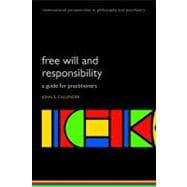'We know our will is free and there's an end on't'. Dr. Johnson's words express a widely held intuition about free will, namely that our actions are the effects of our choices and decisions, and these choices and decisions are not the effects of antecedent causes. At least for some of our actions, the causal chain begins with conscious deliberation about what to do. It is this intuition that informs our attitudes to wrongdoing and justifies the belief that wrongdoers should be punished because this is what they deserve. However, we also know that we live in a world in which events have causes.
Research in psychology, psychiatry and the neurosciences aims to investigate the causes of our thoughts, feelings and behaviour, and new techniques, such as neuroimaging, as well as developments in molecular genetics, are demonstrating the many ways in which dysfunction of the brain can lead to the kinds of behaviours that have hitherto been regarded as moral or immoral. So how can our intuitive sense of freedom be reconciled with causal determinism? How can moral judgment and punishment be compatible with the belief that the events that are human actions are, like any other event, the effects of prior causes?
In Free Will and Responsibility, John Callender starts by describing the evolution of morality and the roles of reason and emotion in the making of moral judgments. He then summarises recent neuroscientific research on volitional behaviour, moral decision-making, and criminality, and discusses what this might mean for our practices of blame and punishment. In the second part, he examines the overlaps between art, free will, and moral value and argues that this offers a paradigm that reconciles our subjective sense of freedom with causal determinism. Finally, he examines these ideas in the clinical context of conditions such as psychopathic personality disorder, post-traumatic stress disorder and the dissociative disorders and discusses their implications for psychotherapy.
This book makes a unique contribution to the philosophy and psychiatry literature, and will be fascinating reading for both practising psychiatrists, as well as philosophers, neuroscientists, and psychologists.








